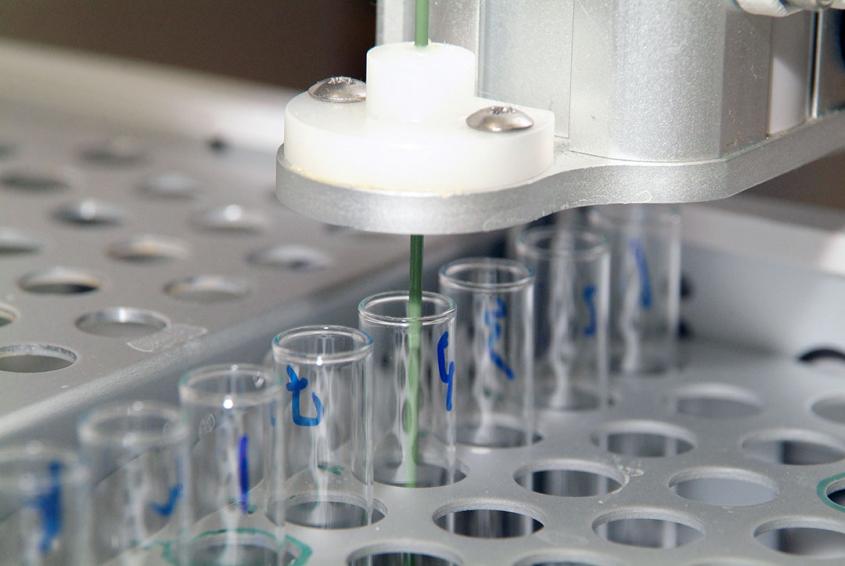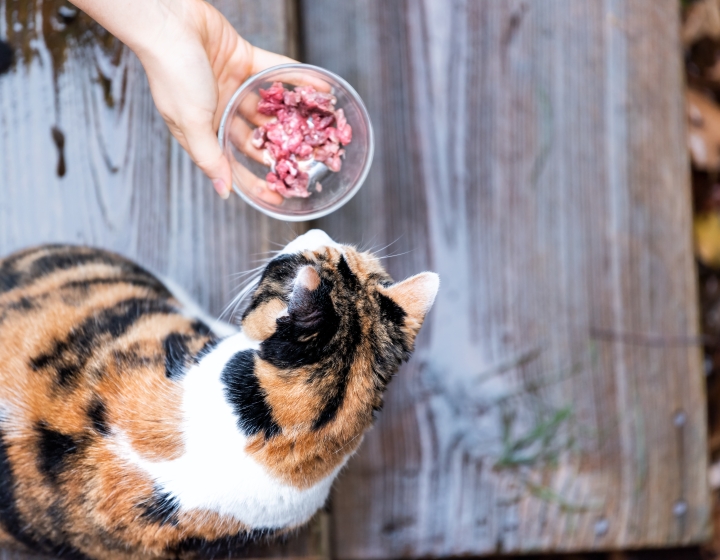Cornell veterinarian to represent United States in international standards organization
In March of this year, two separate fertility clinics lost the frozen eggs and embryos of approximately 1,500 patients in one weekend. A failure in the liquid nitrogen storage tanks at both the Pacific Fertility Center in San Francisco and the University Hospitals Cleveland Medical Center allowed eggs and embryos to warm to unsafe levels, rendering them inviable. The biobanking community was left stunned by the tragedy.
“Everything about biobanking has to do with our investment in the future, but unfortunately, there were no standardized requirements to protect this investment,” said Dr. Marta Castelhano, senior research associate with the College of Veterinary Medicine and director of the Cornell Veterinary Biobank.
After the devastating malfunctions at the San Francisco and Cleveland facilities, which resulted in dozens of legal actions, the International Society for Biological and Environmental Repositories (ISBER) deployed their taskforce to complete the review of a new international biobanking standard to prevent such malfunctions from ever happening again. Although groups like ISBER had previously developed best practices documents, a worldwide industrial and commercial standard had yet to be approved.
ISBER had invited Castelhano to be their taskforce expert in non-human biobanking. Since most of the world’s facilities are for human biobanks, Castelhano’s presence ensured that biobanks which collect animal samples were also represented. With the help of that taskforce, the biobank standard “ISO 20387 Biotechnology-Biobanking-General requirements for biobanking” was released in August, providing a baseline for biobanks worldwide.
Castelhano’s role on the taskforce put her at the forefront of the community’s drive to standardize biobanking practices. She was tapped by the National Institute of Standards and Technology to represent the United States as a technical expert and delegate for the International Organization for Standardization, known as ISO. The ISO is an independent, non-governmental organization that brings together experts from 168 countries to develop standards for almost every industry, including technology, food safety and healthcare. It is the most prominent organization for the implementation of standards in the world.
“Dr. Castelhano’s attendance and participation at a global level will contribute to the acceptance and issuance of key standards, and will not only serve the Cornell Veterinary Biobank, but ultimately countless biobanks worldwide,” said Dr. Kristy Richards, associate professor in the Department of Biomedical Sciences and chair of the biobank’s governance committee.
As a technical expert and delegate at the ISO, Castelhano is developing an implementation document for the ISO standard, which will help organizations incorporate the requirements into their day-to-day practices. She’ll also be developing an ISO document specific to non-human biobanks in addition to representing the U.S. position at the organization’s gatherings by developing, reviewing and voting on content with experts and delegates from the other member countries.
“It is important that Cornell is part of this process through Dr. Castelhano, who is uniquely suited to leverage her expertise to benefit the field as a whole,” said Richards.
An investment in discovery
Working with the clinicians and staff at the Cornell University Hospital for Animals to obtain informed consent from clients, the Cornell Veterinary Biobank collects biological samples from patients and then processes and catalogues them, making them available to researchers. This accelerates scientific study, as researchers now have access to a wide array of samples, more than they would ever be able to gather themselves. To maximize their impact, biobanks must make sure that any new standards are accurately implemented and adhered to by biobank personnel.
In addition to Castelhano, the college has another in-house expert to help with implementation: Denise Archer, quality assurance manager with the Animal Health Diagnostic Center (AHDC), who has ample experience in this area.
In addition to her work at the AHDC, Archer serves as an assessor for the American Association for Laboratory Accreditation (A2LA), the largest multidisciplinary accreditation body in the U.S., and has performed many assessments across the country to determine whether laboratories meet managerial and technical requirements.
“She knows exactly what it means to implement a quality management system for agreement with an ISO standard,” said Castelhano.
The AHDC has its own collection of samples and has been accredited by the American Association of Veterinary Laboratory Diagnosticians since 2007 and by the A2LA since 2009. Archer and Castelhano are collaborating to achieve accreditation for the Cornell Veterinary Biobank under the new biobanking standard released this August.
“Working with Denise is a win-win. I’m able to put together a better implementation document for ISO because I’ve tested it in my own biobank, and it will make our biobank ready for an onsite accreditation visit when the time comes,” said Castelhano.
She and Archer apply it one section at a time by outlining or modifying procedures and workflow at the Cornell biobank to meet the needs of a given section. It is a thorough, meticulous process. “We’ve done it here at the AHDC, which we know can meet that level of assessment. Dr. Castelhano will certainly be able to do that with the biobank at Cornell and will help others do so as well,” said Archer.
“Her determination to invest in and improve biobanking practices will benefit future generations directly,” said Richards.
“There are only a few big players when it comes to animal biobanks, and of those, Cornell is probably 80 percent ahead of the others on the way to meeting biobank accreditation requirements,” said Archer, who attributes this to Cornell’s uniquely collaborative working environment and the groundwork she and Castelhano have laid. “Dr. Castelhano and the biobank are ahead of the curve.”
“Every time we take a sample, we make a commitment to the client that we’ll put that sample to good use and that their donation will benefit animals and people. It might help your son, your daughter. It’s why the standards are so important and why we follow them so precisely, to fulfill this mission,” said Castelhano.
By Melanie Greaver Cordova
A version of this story also appeared in the Cornell Chronicle.




